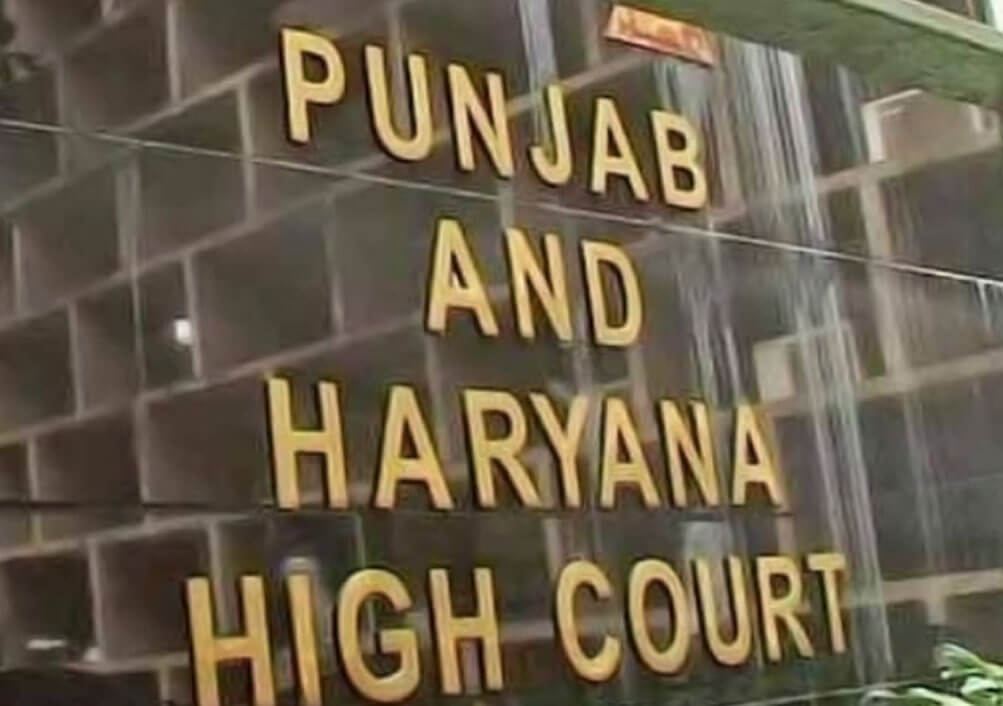Habeas petition of former Punjab DGP Sumedh Singh Saini allowed, arrest by Vigilance Bureau illegal: Punjab and Haryana HC

Read Judgment-SHOBHA v. STATE OF PUNJAB AND OTHERS
Tulip Kanth
Chandigarh, August 20, 2021: The Punjab and Haryana High Court has termed as illegal the arrest of former DGP, Punjab, Sumedh Singh Saini by the Vigilance Bureau and has ordered his forthwith release while allowing a habeas corpus petition.
This criminal petition under Article 226 of the Constitution was filed seeking the issuance of the writ directing the respondents to produce the detenue and it was alleged that he was under mala fide and illegal detention of the Vigilance Bureau at Vigilance Bhawan, SAS Nagar (Mohali), without any cause of action in spite of the protection which was provided by certain earlier orders.
There were four cases registered against Saini under various provisions of IPC , Prevention of Corruption (Amendment) Act, 2018 and Arms Act, 1959 including the offences of cheating and forgery. But, in all the four cases he had been allowed concession of anticipatory bail under Section 438 of the Cr.P.C.
From the petitioner’s side it was mainly argued that the detenue appeared before the Vigilance Bureau for joining investigation in the matter of an FIR dated August 2, 2021 and was illegally arrested in another FIR dated September 17, 2020 due to mala fides, malice and ulterior motives as a result of political vendetta. The offences alleged to have been committed by the detenue were not made out, claimed the petitioner.
The respondents contended that earlier, the Court had passed blanket anticipatory bail orders which were against the law. It was also claimed that the detenue had executed an agreement to sell to create a defence to attachment of the house which was purchased with bribe money.
Referring to the decisions in Gurbaksh Singh Sibbia Vs. State of Punjab and Adri Dharan Das Vs. State of West Bengal , the Court noted that “blanket order” of anticipatory bail should not be “generally” passed and “normally” a direction should not be issued to the effect that the applicant shall be released on bail “whenever arrested for whichever offence whatsoever”.
The Bench of Justice Arun Kumar Tyagi affirmed that even under Section 438 of the Cr.P.C. if special circumstance/circumstances are shown and in extraordinary case and on ample materials being placed on record, the court to strike a balance between individual rights of personal freedom and the investigation right of the police, pass an appropriate order including the one directing the prosecution to give advance notice for a reasonable time.
The Court opined that it was doubtful as to whether the allegations as to execution of agreement to sell to create a defence to attachment of the house satisfy the ingredients of Section 464 of the IPC so as to constitute the offence punishable under Section 467 of the IPC.
Further, the incidents of taking of bribe were alleged to have taken place in the year 2014. The house in question was allegedly purchased in the year 2017. The order for attachment was passed on July 16, 2021. Allegations in respect of the said agreements were also part of the FIR dated August 2,2021 in respect of which Saini had been granted interim anticipatory bail by the Coordinate Bench.
In view of the observations made by Hon’ble Supreme Court in T.T. Antony Vs. State of Kerala , the Court observed, that the said allegations could not form part of another FIR and the petitioner could not be arrested in FIR dated September 17, 2020 for the same alleged criminal acts which were subject matter of FIR dated August 2, 2021 which were specifically referred to in an earlier order and for which the detenue was granted interim anticipatory bail.
Therefore, arrest of the detenue on substantially the same allegations has been stated to be patently illegal.
The Bench also added that the habeas corpus petition concerns serious issue of illegal detention of a person and grant of any adjournment for filing of any detailed reply may defeat the very purpose of filing of the habeas corpus petition.
Thus, interim or final order on the basis of the same can be passed on the material produced before the Court unfolding all the relevant facts and circumstances of the case without granting adjournment for filing of any such detailed reply, remarked the High Court.
Sign up for our weekly newsletter to stay up to date on our product, events featured blog, special offer and all of the exciting things that take place here at Legitquest.




Add a Comment